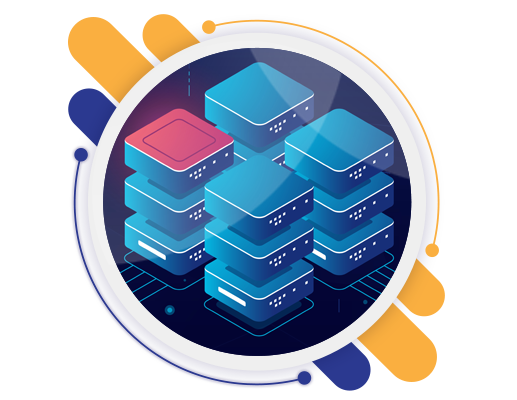"SMEClabs" is a registered trademark of SMEC Automation Pvt. Ltd. © 2024 SMEClabs All rights reserved

78%
Alumni Career Transitions
5200+
Hiring Partners
60%
Avg Salary Hike
22
Years of R & D in Syllabus
It will make you an expert in Machine Learning, a form of Artifificial Intelligence that automates data analysis to enable computers to learn and adapt through experience to do specific tasks without explicit programming. You will master Machine Learning concepts and techniques, including supervised and unsupervised learning, mathematical and heuristic aspects, and hands-on modeling to develop algorithms and prepare you for your role with advanced Machine Learning knowledge
Key Features
Learning Pathway:
Program Outcomes:
Programming is an increasingly important skill; this program will establish your proficiency in handling basic programming concepts. By the end of this program, you will understand object-oriented programming; basic programming concepts such as data types, variables, strings, loops, and functions; and software engineering using Python. 25+ practices sessions on all modules
Objectives:
Program curriculum:
Statistics is the science of assigning a probability through the collection, classification, and analysis of data. A foundational part of Data Science, this session will enable you to define statistics and essential terms related to it, explain measures of central tendency and dispersion, and comprehend skewness, correlation, regression, distribution. Understanding the data is the key to perform Exploratory Data analysis and justify your conclusion to the business or scientific problem.
Objectives:
Program Curriculum:
Perform fundamental hands-on data analysis using the Jupyter Notebook and PyCharm based lab environment and create your own Data Science projects learn the essential concepts of Python programming and gain in-depth knowledge in data analytics, Machine Learning, data visualization, web scraping, and natural language processing. Python is a required skill for many Data Science positions.
Objectives:
Program Curriculum:
It will make you an expert in Machine Learning, a subclass of Artificial Intelligence that automates data analysis to enable computers to learn and adapt through experience to do specific tasks without explicit programming. You will master Machine Learning concepts and techniques, including supervised and unsupervised learning, mathematical and heuristic aspects, and hands-on modeling to develop algorithms and prepare you for your role with advanced Machine Learning knowledge.
Objectives:
Program Curriculum:
This Natural Language Processing and Speech Recognition course will give you a detailed look at the science of applying machine learning algorithms to process large amounts of natural language data. This module primarily focuses on natural language understanding, feature engineering, natural language generation, automated speech recognition, speech to text conversion, text to speech conversion.
Objectives:
Program Curriculum:
A database is an organized collection of structured information, or data, typically stored electronically in a computer system. A database is usually controlled by a database management system (DBMS). Company data are store in databases and later on retrieved using python to develop analytics and bring insights to business problems.
Objectives:
Program curriculum:
Flask is a microframework for developers, designed to enable them to create and scale web apps quickly and simply. This is a way for web servers to pass requests to web applications or frameworks
Objectives:
Program Curriculum:
FastAPI is a modern, fast (high-performance), web framework for building APIs with Python. Creating APIs, is an important part of making your software accessible. In machine learning they allow different applications to share data and work together, saving time and effort.
Objectives:
Program Curriculum:
Django is a Python-based web framework that allows you to quickly create efficient web applications. With built-in features for everything including Django Admin Interface, default database – SQLlite3, etc. Django gives you ready-made components to use and that too for rapid development.
Objectives:
Program Curriculum:
Objectives:
Program curriculum:
Deep learning is one of the most technological advancement made in the fields of artificial intelligence and machine learning. The software and tools which designed to provide high end scientific computing solving problems in multiple domains. Learning OpenCV is the key to perform image processing, filtering, manipulating the image data that is captured from webcam or any image data generated any other source. Several libraries offer AI solutions, computing deep learning with TensorFlow Keras is preferred in most companies. This course is designed to get immense knowledge in developing and deploying machine learning, Deep learning models from scratch to advanced methods including Convolution neural networks, recurrent neural networks, long short term memory (LSTMs), transfer learning etc. Get hands on in several deep learning models and tuning hyper parameters to increase the efficiency of the model.
Objectives:
Program Curriculum:
Kafka and MQTT are two complementary technologies, together they allow to build IoT end-to-end integration from the edge to the data center. MQTT is a widely used ISO standard publish-subscribe-based messaging protocol. MQTT has many implementations such as Mosquitto or HiveMQ. MQTT is mainly used in Internet of Things scenarios (like connected cars or smart home). However, MQTT is not built for high scalability, longer storage or easy integration to legacy systems. Apache Kafka is a highly scalable distributed streaming platform. Kafka ingests, stores, processes and forwards high volumes of data from thousands of IoT devices.
Objectives:
12.2 Program Curriculum:
Technologies:
Python:
Introduction to Python and Computer Programming, Data Types, Variables, Basic Input-Output Operations, Basic Operators, Boolean Values, Conditional Execution, Loops, Lists and List Processing, Logical and Bitwise Operations, Functions, Tuples, Dictionaries, Sets, and Data Processing, Modules, Packages, String and List Methods, and Exceptions, File Handlings. Regular expressions, database, The Object-Oriented Approach: Classes, Methods, Objects, and the Standard Objective Features; Exception Handling, and Working with Files.
Matplotlib:
Scatter plot ,Bar charts, histogram ,Stack charts , Legend title Style , Figures and subplots ,Plotting function in pandas ,Labelling and arranging figures ,Save plots .
Seaborn:
Style functions, Color palettes, Distribution plots, Categorical plots, Regression plots, Axis grid objects.
NumPy
Creating NumPy arrays, Indexing and slicing in NumPy, Downloading and parsing data Creating multidimensional arrays, NumPy Data types, Array attributes, Indexing and Slicing, creating array views copies, Manipulating array shapes I/O .
Pandas:
Using multilevel series, Series and Data Frames, Grouping, aggregating, Merge Data Frames, Generate summary, Group data into logical pieces, Manipulate dates, Creating metrics for analysis, Data wrangling, Merging and joining, Data Mugging using Pandas, Building a Predictive Mode.
Flask
Flask Configuration, Application creation, Routing, Variable Rules, URL Building,
HTTP methods, Templates, Static Files, Request Object, Sending Form Data to Template,
Sessions, Redirect & Errors, File Uploading.
Django
Django Installation, Django Project, Django Admin Interface, App, MVT, Model, Views, Templates, Files Handling, Forms, Validation, File Upload, Database Connectivity, Database Migrations, Django Middleware, Request and Response, Django Exceptions, Django Session, Django Redirects
Scikit-learn:
Scikit Learn Overview, Plotting a graph, Identifying features and labels, Saving and opening a model, Classification, Train / test split, What is KNN? What is SVM?, Linear regression, Logistic vs linear regression, KMeans, Neural networks, Overfitting and underfitting, Backpropagation, Cost function and gradient descent, CNNs
Keras:
Introduction to Deep Learning – Biological Neural Networks Artificial Neural Networks, Activation Functions, Introduction to Deep Learning Libraries, Regression Models with Keras, Classification Models with Keras, Deep Neural Networks, Convolutional Neural Networks, Recurrent Neural Networks.
TensorFlow
Introduction to TensorFlow, HelloWorld with TensorFlow, Linear Regression, Nonlinear Regression, Logistic Regression, Activation Functions, Convolutional Neural Networks (CNN), CNN History, Understanding CNNs, CNN Application, Distributed Computing, Exporting, Multi-Layer Perceptron Learning, Hidden Layers of Perceptron, Optimizers, Gradient Descent Optimization, Forming Graphs, Image Recognition using TensorFlow
Natural Language Processing
Introduction to NLP, Linguistic Resources, Word Level Analysis, Syntactic Analysis, Semantic Analysis, Word Sense Disambiguation, Natural Language Discourse Processing, Part of Speech (PoS), Tagging, Natural Language Processing – Inception, NLP – Information Retrieval, Applications of NLP, Natural Language Processing – Python (NLTK)
MySQL
MySQL – Introduction, Installation, Create Database, Drop Database, Selecting Database, Data Types, Create Tables, Drop Tables, Insert Query, Select Query, WHERE Clause, Update Query, DELETE Query, LIKE Clause, Sorting Results, Using Joins, Handling NULL Values, ALTER Command, Aggregate functions, MySQL Clauses, MySQL Conditions.
MongoDB
No Schema, Install MongoDB, How MongoDB Works? Insert First Data, CRUD Operations, Insert Many, Update and Update Many, Delete and Delete Many, Diving Deep into find Difference bbetween update and update Many, Projection, Intro to Embed Documents, Embed Documents in Action, Adding Arrays, Fetching Data from Structured Data, Schema Types, Types of Data in Mongo DB, Relationship between data.
Web Scraping:
Scraping Webpages, Scrapping steps, Beautiful Soup package.
Java
Features of Java, Java basics, if statement, Loops, Arrays, Switch, Methods, defining a class, Access Modifiers, Scope and lifetime of variables, Creating an Object, Object invocation, Method Overloading. Constructor, this, Inheritance, overriding, super, final, Local Classes, Anonymous Classes, Static classes, Inner class, Nested Classes, Abstract class, Interfaces, Packages, Access control, Basic java.lang Package, Exception Handling, java.util Package, Collection Frameworks, I/O and streaming, DBMS & RDBMS, JDBC
Hadoop: Hadoop Architecture & HDFS
Introduction to Big Data and Hadoop, ccommand to monitor the cluster, Hadoop Architecture Distributed Storage (HDFS) and Yarn, What is HDFS, Need for HDFS, Regular File System vs HDFS, Characteristics of HDFS, HDFS Architecture and Components, High Availability Cluster, Implementations, HDFS Component File System Namespace, Data Block Split, Data Replication Topology, HDFS Command Line, Demo: Common HDFS Commands.
HBase
HBase Overview, Data Model, Configuration, Shell, Write, MemStore, General Commands, Creating a Table using HBase Shell, Creating a Table Using API, Listing a Table using HBase Shell, Listing Tables Using API, Enabling a Table, Describe & Alter, Drop a Table, Create Data, Update Data, Read Data, Delete Dat.
Hive
Introduction to Hive, Hive SQL over Hadoop MapReduce, Hive Architecture, Interfaces to Run Hive Queries, Running Beeline from Command Line, Hive DDL and DML, Creating New Table, Data Types, File Format Types, Data Serialization, Hive Table and Avro Schema, Hive Optimization Partitioning Bucketing and Sampling, Data Insertion, Data Representation and Import Using Hive.
Scala
Basics of Functional Programming and Scala, Functional Programming, Programming With Scala, Basic Literals and Arithmetic Programming, Logical Operators, Arrays, Lists, Tuples, Sets, Maps, Type Inference, Classes, Objects , Functions in Scala, Type Inference Functions Anonymous Function and Class, Exception Handling, FILE Operations
Apache Spark
Introduction to Apache Spark, Limitations of MapReduce in Hadoop, Advantages of Spark, Components of Spark, Spark Architecture, Spark Shell, Application of In-memory Processing, Spark Cluster, Running a Scala Programs in Spark Shell, RDD.
Apache Kafka
Understanding messaging system in IOT, Understand Apache Kafka Ecosystem, Architecture, Core Concept, Producers and Consumers concepts, Extended APIs Overview (Kafka Connect, Kafka Streams), Topics, Partitions, Brokers, Producers, Consumers, clusters. Industry use case and applications in Data science pipelines
AWS IOT
Configuring and deploying AWS for IOT data stream processing with services such as AWS IoT Core, MQTT messages streaming to AWS IoT, AWS IoT Device Management and AWS IoT Analytics, Understanding AWS IoT APIs and SDKs, Industry use case and applications in Data science pipelines
Best Master in Data Science Course Training and Certification 2023 Online Offline classes Virtual Lab Facility Updated syllabus Computer Hardware
** The above is the lite syllabus and doesn’t cover the full syllabus. To get full syllabus Book a Free Demo Now

Certifications & Accreditations






Mode of Training
6 months +
Learning Content + Practicals
This is a field in which a lot of data would be utilized, this data could be information regarding many things. Data science is widely used in several business sectors, academics, the medical field, and in a lot of other sectors.
Yes, data science has a good future, it is utilized in various sectors so there would be a lot of opportunities for data science.
Data science is a good-paying job, for a fresher, the salary could start from 5 lakhs per annum, and for an experienced professional it could reach up to 10 lakh per annum.
SMEC, one of India’s first worldwide EPC contractor company globally recognized for its distinctive services specifically in Marine & Industrial Automation, Instrumentation, Electrical, Pneumatics, Hydraulics and Mechanical sectors which started its journey in 2001. It has a R&D and training division SMEClabs which caters job-oriented training in various domains which helps an aspiring engineer /fresher or professionals to get a jump start to their career.
SMEClabs
INDIA
2nd Floor Kaloor Bus stand Complex Cochin.
Ph: +91 9958873874
[email protected]
"SMEClabs" is a registered trademark of SMEC Automation Pvt. Ltd. © 2024 SMEClabs All rights reserved